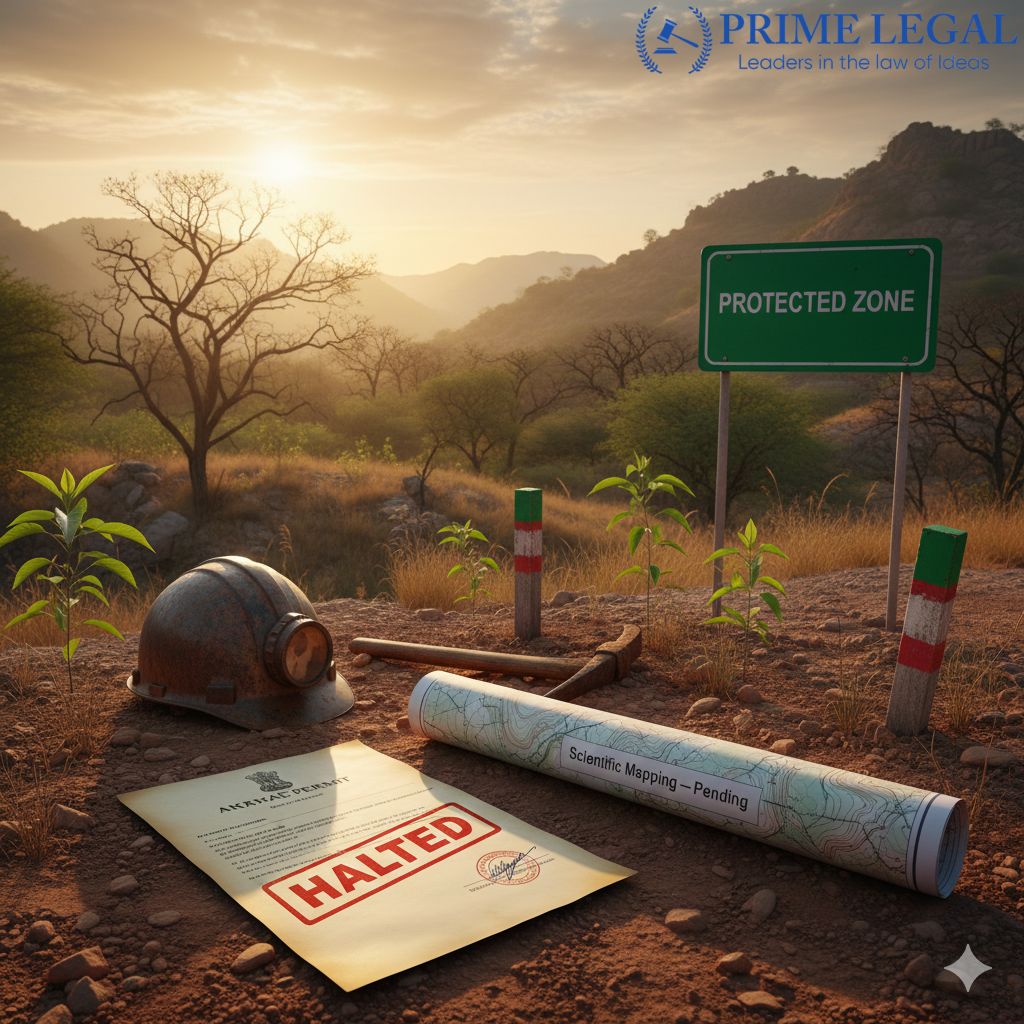INTRODUCTION
The Apex Court has directed the Centre to carry out scientific mapping and prepare a Management Plan for Sustainable Mining (MPSM) for the entire Aravalli Hill Range, and ordered that no new mining leases or renewals be granted until that exercise is completed. The Court emphasised preserving the continuity and ecological integrity of the Aravallis while allowing only regulated, sustainable mining where scientifically permitted
BACKGROUND
The Aravalli Range is one of India’s oldest fold mountain systems stretching across Gujarat, Rajasthan, Haryana and the Delhi NCR. It has faced decades of pressure from urbanisation, quarrying and illegal mining. Disparate state level definitions of the “Aravalli” and varying mining approvals resulted in fragmented protection and widespread illegal extraction. In response to a court hearing, the Central Empowered Committee and other technical bodies submitted reports with a proposal for a single, scientific definition and designation for the Aravallis to help guide permissible uses.
KEY POINTS
- To ensure consistent regulation across states, the court accepted a single, standardized definition of the Aravali Hills and ranges
- The Court decided that no fresh mining leases or renewals are to be granted in the Aravalli ranges until the Ministry of Environment, Forest Climate Changes (MoEF&CC) prepares and notifies the MPSM. The MPSM must be based on scientific mapping, zonation and ecological sensitivity, carried out by an identified technical agency and funded appropriately.
- Existing legally-operated mines may continue only under strict environmental safeguards and compliance; illegal/mining outside permitted zones remains prohibited and liable to enforcement action.
- The Court declined an absolute ban on all mining (noting blanket bans can push activity underground), preferring a regulated, science-led approach to prevent illegal mining while preserving livelihoods where sustainable extraction is possible.
RECENT DEVELOPMENTS
The present direction follows a long line of litigation over the Aravallis, including PILs and earlier Supreme Court directions that treated large tracts as ‘forest’ or protected land for purposes of non-forest use restrictions (notably matters arising in the T. N. Godavarman Thirumulpad proceedings and successive CEC reports). The Court has repeatedly intervened to check illegal mining, to secure forest and revenue land from non-forest conversion, and to insist on a scientific, uniform delineation to remove ambiguity between states. Most recently the Court heard applications and CEC reports (2024–2025) which highlighted rampant illegal mining and recommended a single definition, zonation and MPSM — leading to the current order directing MoEF&CC to prepare the plan and halting new leases till completion.
CONCLUSION
The Court’s approach balances ecological protection with pragmatic governance: it refuses a blanket prohibition that risks driving mining underground, instead mandating a transparent, science-driven management plan and a uniform legal definition to uproot ambiguity that has enabled illegal activity. For legal scholarship, the immediate tasks are (a) tracking the MoEF&CC’s MPSM and consultation process, (b) analysing how zonation will interact with state mining laws and revenue records, and (c) monitoring enforcement against illegal mining during the transitional period. The order is significant: it reasserts judicial insistence on scientific evidence and central coordination where trans-state ecological features are at stake.
“PRIME LEGAL is a full-service law firm that has won a National Award and has more than 20 years of experience in an array of sectors and practice areas. Prime legal falls into the category of best law firm, best lawyer, best family lawyer, best divorce lawyer, best divorce law firm, best criminal lawyer, best criminal law firm, best consumer lawyer, best civil lawyer.”
WRITTEN BY- SUSMITA ROYCHOWDHURY


